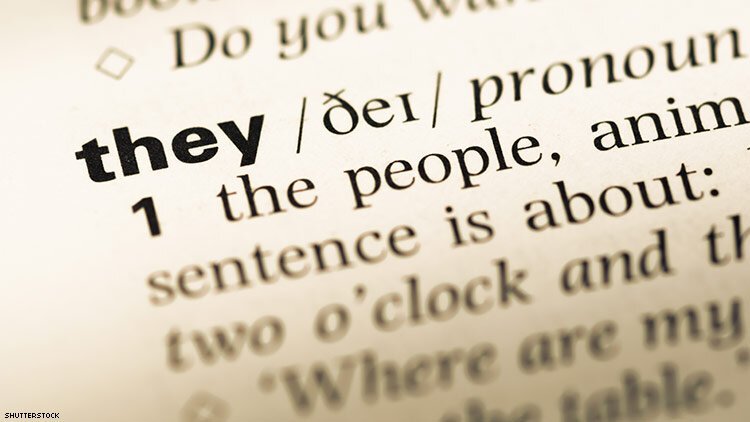The Importance of Pronouns.
Erica Freedman, (she/her/hers) Operations Manager, Beloved Community
An integral part of helping employees thrive is creating a space where every individual feels they can bring their full selves to work. — Elden Seropian
At Beloved Community we begin every facilitation with a group introduction. We ask each participant to share a bit about who they are; their history, what they’re hoping to learn, what brought them to our facilitation or talk, and to identify their gender pronouns.
In honor of Transgender Day of Visibility (TDOV) we wanted to highlight the importance and impact of validating gender pronouns both in the workplace and in everyday conversation.
What are pronouns? Pronouns are words that can function by themselves to refer either to participants in a discourse (e.g., I, you ) or to someone or something mentioned elsewhere in a discourse (e.g., she, it, this ). Because pronouns can be used to replace an individual’s name or other identifying characteristic, it is imperative to clarify how a person identifies before generalizing them into one group over another.
The most important thing to remember about pronouns is that it is virtually impossible to know someone’s gender or identity simply by looking at them. The assumption we make based on an individual’s personal appearance is dangerous for the mental and physical health of that person. These assumptions also reinforce oppressive behaviors around gender and identity politics.
Taking the time to find out and then implement an individual’s pronouns is one of the easiest and most direct ways to show that you respect and validate a person’s identity. This is why we are committed to using gender pronouns in our introductions. This is a simple, yet powerful way to create space for those who identify as gender non-conforming, gender-fluid, trans and beyond, while also challenging those of us who are cisgender (a term for people whose gender identity matches the sex they were assigned at birth) to think about the privilege of not having to think about sharing our pronouns, or wondering if people will make assumptions based on our gender identity.
A pronoun challenge: Beloved Community strongly suggests that your organization practice weaving gender pronouns into introductions with staff or youth so that people can begin to think more critically about gender as a social construct. This practice also allows those who don’t identify as cisgender to be able to share their pronoun preference at the same time as everyone else. In short, this practice creates a culture of inclusion.
As you begin using gender pronoun practices in everyday conversation, consider utilizing the following tips as a jumping off point:
Ask individuals for their gender pronouns before you begin a talk or presentation. Try not to assume. Introductions are a great place to do this, or you can encourage individuals to include their gender pronouns on their name tag if it’s a larger group.
Commit to using gender-inclusive language (speaking and writing in a way that does not discriminate against a particular sex, social gender or gender identity, and does not perpetuate gender stereotype) if you are unsure which pronouns are applicable, try using they/them, zim/zer or xe/xem.
If you make a mistake, don’t get upset! Simply apologize, don’t make it about you, and correct the error. Sorry Sam! I didn’t mean to say ‘her.’ As I was saying, they are seriously an amazing human.
A note about not making it about you: well-intentioned folx make mistakes everyday, including us, but beware of taking up space as a cisgendered individual and making the apology about how terribly you feel about the mistake. This puts labor on already-marginalized folx to educate you and make you feel better about the potential harm you caused with the mis-gendered pronoun. Again, we encourage you to apologize and correct the error. You can take time later to continue to educate yourself, or debrief your feelings with a friend or colleague.
Be gentle with yourself and others. This work of unlearning societal constructs takes time and practice. If at first you don’t succeed, try, try, again!
Utilizing Kimberly Crenshaw’s theory of intersectionality, we as organizations must constantly examine practices we have that might be reinforcing the oppression of historically and socially marginalized populations and the effects those practices have on invalidating identity to uphold inequitable systems. Read more about intersectionality in Dra. Nicole Caridad Ralston’s piece Black History Month: What Is Intersectionality?
At Beloved Community, we have our pronouns in our email signatures, on our name tags, and even in our Zoom profiles. Although we are currently a team of cisgender females who collectively use she/her/hers pronouns, we recognize this may not always be the face of Beloved. We don’t use gender pronouns for us, but rather to respect and hold space for individuals who require these words to best show up as their complete selves, and to educate others on the importance of understanding the complexities of gender identity.
After all, “Our sense of belonging can never be greater than our level of self-acceptance.” — Brene Brown
If you would like to explore more resources on gender identity, gender pronouns and inclusive language, please check out our list of some resources below:
Pronouns, What & Why: mypronouns.org
A Guide to Using Gender Inclusive Language: The Muse
Words Matter-Gender Justice Toolkit: National Black Justice Coalition
Talking About Pronouns in the Workplace: Human Rights Campaign Foundation

